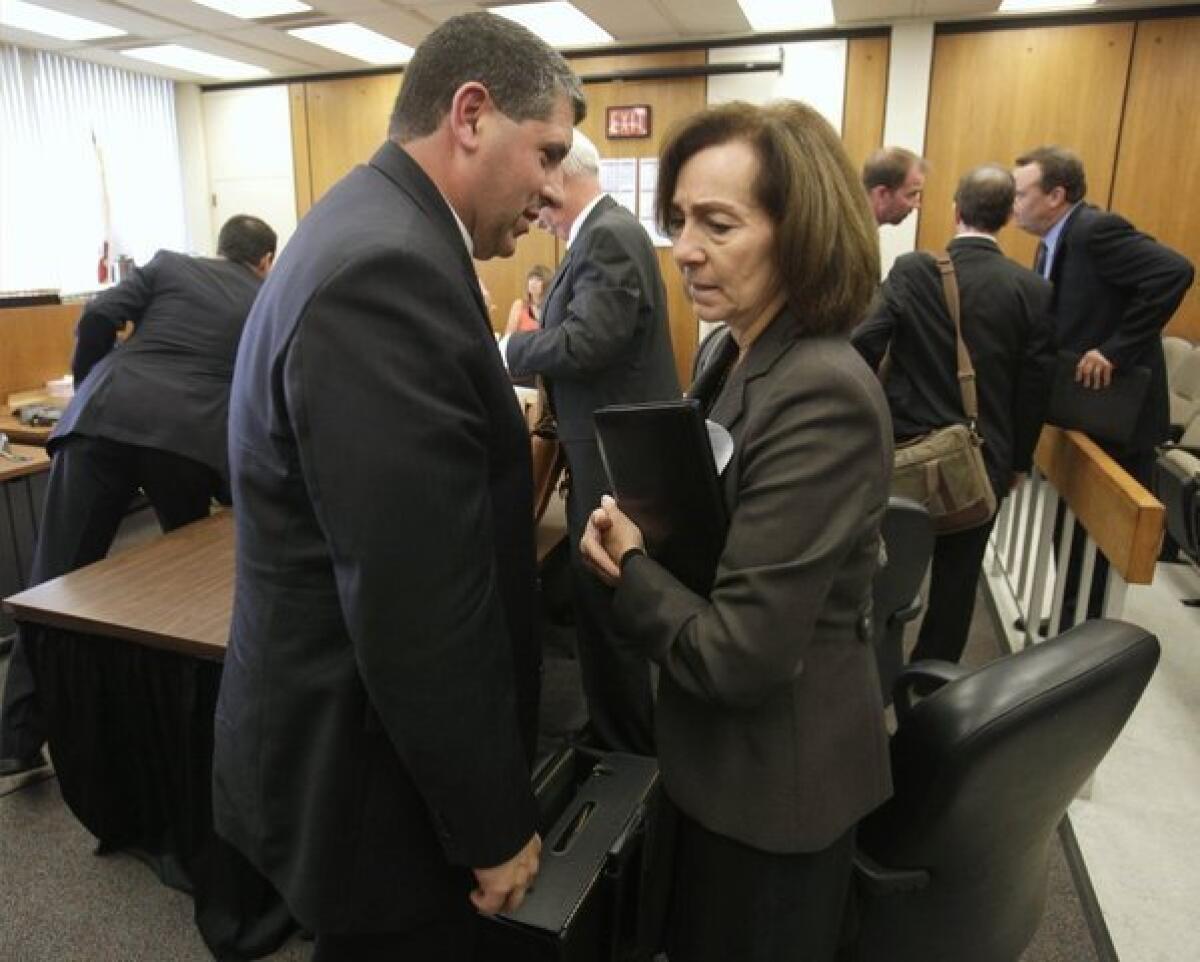Settlement is last hurrah for campaign finance watchdog Ann Ravel

- Share via
SACRAMENTO -- Ann Ravel is finishing her tenure as California’s top campaign finance watchdog with a splash.
One day before she leaves the Fair Political Practices Commission, she will announce on Thursday a settlement over a controversial $11-million donation from an obscure Arizona nonprofit, ending a yearlong case that drew national attention.
A source with knowledge of the case said the settlement will involve two organizations -- Americans for Responsible Leadership and the Center to Protect Patient Rights. The latter group functioned like a clearinghouse for conservative political donations and has been linked to Charles and David Koch, billionaire Republican donors.
The two nonprofits will face a combined $1 million fine, according to the source, who requested anonymity to discuss the case before Thursday’s announcement.
Ravel is headed for a seat on the Federal Election Commission in Washington, where she was appointed by President Obama.
A Democrat, she will be one of six members of a commission that has been plagued by partisan gridlock. It’s also been criticized for failing to clamp down on the type of secret political money that Ravel targeted as chair of the California commission.
The $11-million donation was given to the Small Business Action Committee, a California political organization, by Americans for Responsible Leadership, a nonprofit in Arizona, in October 2012. The money was provided to fight Gov. Jerry Brown’s tax-hike plan and support another measure intended to weaken unions’ political influence.
After receiving a complaint from California Common Cause, Ravel launched an investigation into whether the donation violated the state’s campaign finance regulations. Although the Arizona nonprofit does not need to disclose its donors under federal law, California has its own, stricter rules when it comes to state campaigns.
A lightning-fast legal battle ensued, and Republican lawyers dispatched from the Washington area fought Ravel’s investigation. In a court filing, they described her as a “one-woman media onslaught, rabblerousing and prejudging, including ‘tweeting’ her incendiary view.”
Just days before the November election, the California Supreme Court ordered the Arizona nonprofit to cooperate with the investigation. The nonprofit revealed it received the $11 million from two other nonprofits -- the Center to Protect Patient Rights, also in Arizona, and the Virginia-based Americans for Job Security.
Neither organization revealed its donors, the original source of the money remained secret and the state’s investigation continued.
Ravel has used the case to highlight the secretive nature of political nonprofits, and urge states to collaborate when federal authorities don’t try to unmask donors’ identities.
“There is no question that one of the reasons to have states working together is because the federal government, in numerous arenas, has failed to take action,” she said in May.
ALSO:
States tackle ‘secret money’ in politics
Secret donation hindered campaigns, GOP advisors say
Controversial Arizona nonprofit releases name of contributors -- more nonprofits
Twitter: @chrismegerian
More to Read
Sign up for Essential California
The most important California stories and recommendations in your inbox every morning.
You may occasionally receive promotional content from the Los Angeles Times.











